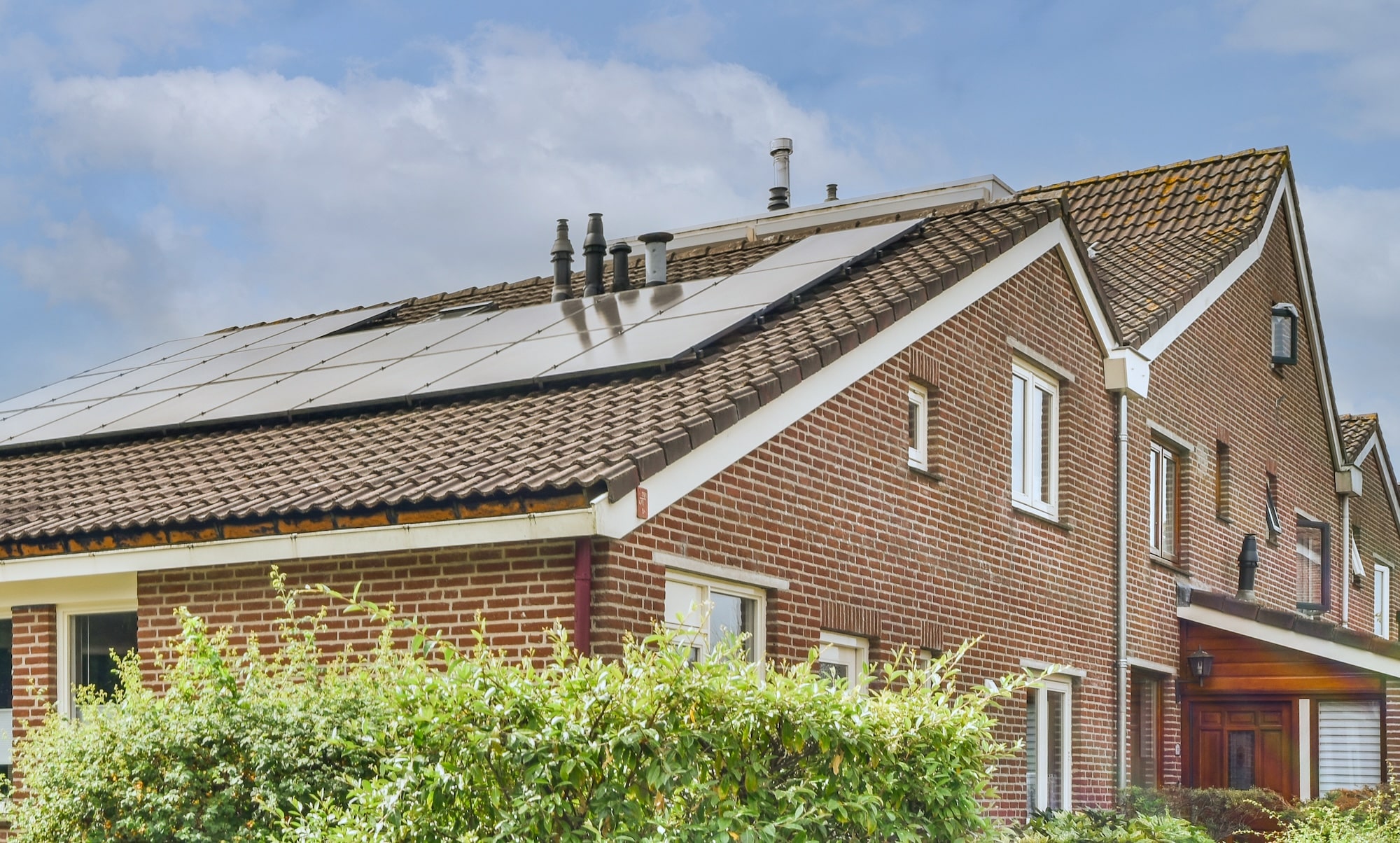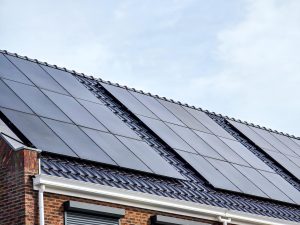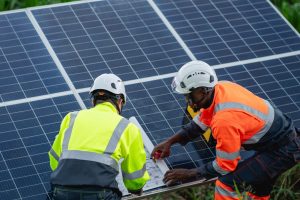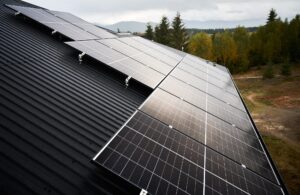
If you’re thinking about switching to solar, one of the first things to figure out is whether your roof can actually handle it. After all, not every roof is built the same, and a few simple factors can make a big difference to how much energy your panels generate.
Thankfully, many UK homes are suitable for solar, as long as the roof is in decent condition and gets a reasonable amount of sunlight. But before you start planning your installation, it’s worth knowing what to check for.
At Bolton Electrical Services, we carry out full solar assessments across Bolton and the North West, helping homeowners and businesses find out exactly how well their roof is suited for solar panels, and what can be done to make it even better.
TL;DR: Is My Roof Suitable for Solar Panels?
- Most UK roofs are suitable as long as they’re in good condition and get regular sunlight.
- South-facing roofs are the most efficient, but east- and west-facing roofs still perform well.
- You’ll need a strong roof structure and minimal shading from trees or nearby buildings.
- Flat and garage roofs can also work with angled mounts.
- If your roof is older or due for repairs, it’s best to sort that before installing solar.
- Not sure? Bolton Electrical Services can carry out a full site survey and confirm your roof’s suitability.
What Makes a Roof Suitable for Solar Panels?
Roof Direction and Sunlight Exposure
The direction your roof faces has a big impact on how much energy your solar panels can produce. In the UK, south-facing roofs are ideal because they get the most sunlight throughout the day.
That said, east- and west-facing roofs can still perform very well, often generating around 80–90% of the energy a south-facing roof would.
A north-facing roof will usually produce less power, but it doesn’t automatically rule out solar. With the right system design and placement, it’s still possible to achieve worthwhile savings.
It’s also worth checking for shading from nearby trees, chimneys, or other buildings, as even partial shade can reduce your panels’ output.

Roof Angle and Pitch
The best roof angle for solar panels in the UK tends to fall between 30 and 40 degrees, as this allows the panels to capture sunlight efficiently year-round. Luckily, most pitched roofs already sit within this range.
If you’ve got a flat roof, you can still install solar panels, they just need to be mounted on angled frames to achieve the correct tilt. In fact, flat roofs can sometimes offer more flexibility in positioning panels for maximum exposure.
Roof Condition and Strength
Before fitting solar panels, your roof needs to be in good condition and strong enough to support the extra weight of the panels and mounting equipment.
A professional installer will check this during the site survey to make sure everything is structurally sound.
If your roof is older or showing signs of wear, it’s a good idea to carry out repairs or reinforcement first. Fixing any loose tiles or weak areas before installation will save time and money in the long run.

Common Problems with Installing Solar Panels on Roofs
Shading and Obstructions
One of the most common issues that affects solar panel performance is shading. Even a small shadow from a chimney, nearby tree, or TV aerial can reduce how much energy your system produces.
Because solar panels are often linked together in strings, shading one panel can lower the efficiency of all the others in that circuit.
Before installation, we always carry out a site survey to check for anything that might block sunlight. In some cases, simple changes, like trimming branches or adjusting panel layout, can make a big difference to overall performance.
Roof Age and Materials
The type and age of your roof can also affect how solar panels are installed. Tile, slate, metal, and flat roofs each require different mounting systems to ensure the panels are fitted securely and watertight.
If your roof is quite old or has loose tiles, it may need repairs or reinforcement before installation. This isn’t unusual, many homeowners take the opportunity to upgrade their roof while adding solar, especially if they plan to stay in the property long-term.
And yes, garage roofs can often be used too, provided they’re structurally sound and receive enough sunlight.
Structural or Planning Constraints
While most homes in the UK can have solar panels fitted under permitted development rights, there are some exceptions.
If your property is listed or sits within a conservation area, you may need to apply for planning permission first.
Height restrictions can also apply if panels extend too far above the existing roofline, though a professional installer like Bolton Electrical will handle this as part of the planning process.
What About Garage, Extension, or Flat Roofs?
Solar Panels on Garage Roofs
If your main roof isn’t ideal, your garage roof could be a great alternative. Many garages have good sun exposure, especially if they face south or west, and can easily support a small solar system.
Both pitched and flat garage roofs can be used, it’s simply a matter of choosing the right mounting setup.
For flat roofs, we fit panels on adjustable frames that tilt them towards the sun for better efficiency. This setup can work just as well as a traditional roof installation and sometimes gives you more flexibility in positioning.
Flat Roof and Outbuilding Installations
Flat roofs, garden offices, and outbuildings can also be suitable for solar panels. The key is using angled mounting systems that lift the panels to the correct pitch, usually between 30 and 40 degrees.
We also consider things like drainage and wind load to make sure the system stays secure and performs efficiently year-round.
When done properly, a flat-roof installation can look neat, modern, and work just as effectively as one on a traditional house roof.
How to Check If Your Roof Is Suitable
If you’re just starting to explore solar, there are a few easy ways to get a rough idea of whether your roof might work.
You can use online solar calculators to estimate how much energy you could generate based on your postcode and roof direction.
A quick look on Google Earth can also help you see how much direct sunlight your roof gets and whether any nearby trees or buildings might cause shading. If your roof looks clear and faces somewhere between east and west, it’s often a good sign that solar could work well for you.
These checks aren’t foolproof, but they’re a useful starting point before you speak to a professional.
Professional Roof Assessment
For an accurate answer, it’s always worth arranging a professional solar assessment. At Bolton Electrical Services, we carry out full site surveys to check whether your roof is structurally sound, at the right angle, and getting enough sunlight throughout the year.
We also look at roof materials, electrical connections, and available space to design a system that’s both safe and efficient. Every property is different, so our goal is to give you honest advice on what’s possible and how to make your setup perform at its best.
FAQs
Is my roof suitable for solar panels?
Most UK homes are. As long as your roof is structurally sound, faces within 90° of south, and has limited shading, solar panels will work efficiently.
Can I have solar panels on my garage roof?
Yes, garage and outbuilding roofs are ideal if they get enough sunlight and are in good condition.
What is the best roof for solar panels in the UK?
South-facing, pitched roofs at around 30–40° are the most efficient, but modern solar systems perform well on many roof types.
Can I install solar panels on a flat roof?
Yes. Flat roofs can use angled mounting systems to optimise panel tilt and drainage.
Do solar panels damage roofs?
No, when fitted by professionals like Bolton Electrical, mounting systems are designed to protect your roof and remain fully watertight.
Do I need to replace my roof before installing solar panels?
Not usually, unless it’s in poor condition or due for replacement soon, it’s best to address this before installation.

